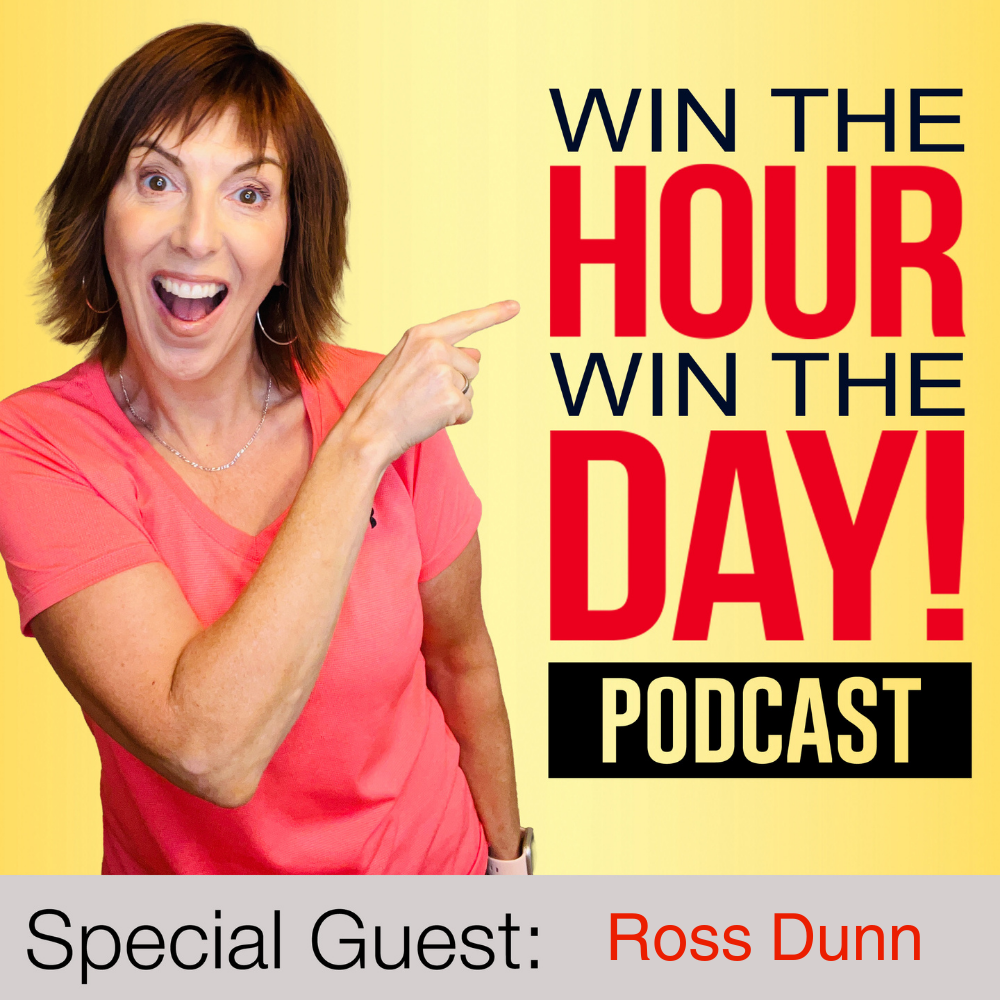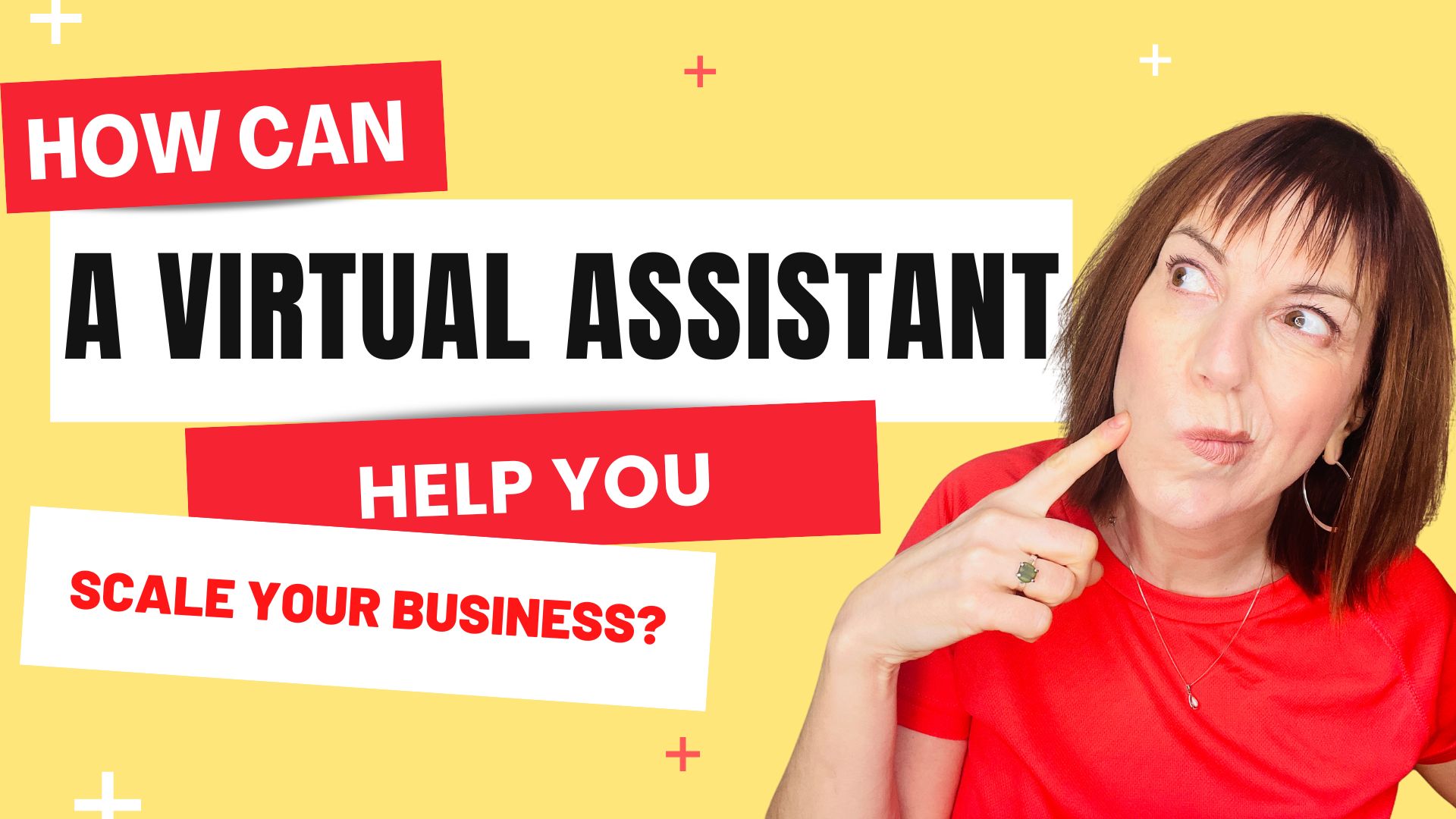Episode Summary
Christine Nicholson really opens our eyes!!! She gives us clear and memorable examples about pricing and the true value of our business.
Learn:
-what happens to 70% of business and how to prevent it.
-a secret invoicing ninja trick that will change everything for your business.
-how to effectively increase your prices and why you should today!
And MUCH more!!!
You can find Christine Nicholson at:
Website: https://www.businessmentoruk.com/
Email: christine@christinenicholson.co.uk
LinkedIn: https://www.linkedin.com/in/christine-nicholson/
Win The Hour Win The Day
https://winthehourwintheday.com
Christine Nicholson Podcast Transcription
[00:12:09]Kris Ward: Hey, everyone. Welcome to another episode of Win The Hour, Win The Day and I am your host and…. your host, Kris Ward. I forgot my name. I know I forgot my name because we have Christine Nicholson in the house. So we’ve got two Chris’s here and we are excited to dive in with Christine because she’s going to talk to us about five ways you’re choking your profits and how you can fix them today. Hmm. That sounds interesting. So let’s get to it. Welcome to the show, Christine.
[00:12:35]Christine Nicholson: Oh, thank you so much for having me. Yeah. I love your podcast. Another thing, so I’m really pleased to be on here.
[00:12:44]Kris Ward: Well, what I tell everyone is flatterly. We’ll get flattery will get you everywhere.
Okay. So we’re off to a great start. Okay. So five things that are choking your profits and how you can fix them today. All right. The first one we’re going to start with is, and this always confuses and scares people, but it’s not charging enough, is that correct?
[00:13:09]Christine Nicholson: Absolutely. I mean, in accounting language, it’s poor margins, but actually you hit the nail right on the head in layman’s language is put your prices up.
[00:13:20]Kris Ward: Okay. Now of course, so many people as entrepreneurs, you have these little dark moments by yourself and you know what we do, Christine, we’re all about your business should support your life instead of consuming it. My clients I’ll work too hard. And so what happens is they’re all at this point where they’re making money, but they’re still working too many hours compared to where they thought they’d be at this point in the journey.
[00:13:42] And when you say raising prices, the first instinct everyone has, I think is, oh my gosh. Well, if I raise my price, I’m already, now I have to work harder to get more business. And I’m already working too hard.
[00:13:57]Christine Nicholson: Yeah. So I’d like to just turn that completely on its head. And let’s say your personal trainer charges $50 an hour and you’re fully booked and you literally can’t work another hour.
[00:14:10] If you put your prices up, actually, if you doubled your price, you can afford to lose half your clients. You’re now only working half the hours of exactly the same amount of money. And funnily enough, it’s actually easier to get. It sounds crazy. So I’m going to probably say it twice. It’s easier to get higher paying clients than it is to get lower paying clients.
[00:14:34] If you understand your own value, if you knew your own value, you would never discount and you would charge a fair rate for the value that you’re adding.
[00:14:43]Kris Ward: Okay. Now, if you’re going to throw math and logic into this conversation, you’re going to outwit me really a lot, because that is not, I have an empty spot in my head where math should be in like, you know, leaves blow around and stuff like an open window, but that was a really clear
[00:14:59] example. Like that just totally, that gave me a whole new perspective. Now. Okay. So you’re right. Cause then you’d have the same amount of money and you’d be working less hours, especially and you gave a really good example because if you’re a personal trainer, they really are trading time for money and they really are limited to the calendar.
[00:15:16] So it’s not this foolishness that we sometimes buy into as entrepreneurs where you can outrun the clock. Right. Okay. So that is a really great example. Okay. So now, at what point, when do you know you should be putting your prices up?
[00:15:34]Christine Nicholson: Well, a lot of people go, oh, if I put my prices up, you know, I lose my existing customers.
So one of the things I say is how about owning and accepting a new client. Because they don’t know how much everyone’s pay is being paid. You only accept a new client at least equal to your highest paying client or equipment. Yeah, because then what you can do is you can drop the bottom client. So let’s say we’ve got capacity for 10 clients.
[00:15:59] And this happens to me, I’ve got limited capacity clients. So, you only take on a new client at a higher rate and then you drop the bottom one off. And then actually, if you take that as an annual discipline to look at all your clients and then say, ‘Hmm, if I took off the bottom 15%. Oh 10%, however many it is,’ but just took those off and sent them somewhere else where somebody else would be really happy to service any needs for that price.
[00:16:29] It gives me space to go and get these higher clients. And if you’ve got the space to let something in, voila, I hate to get we were, cause I am the least we were person, but if you’ve got space to let someone in, you can actually go and find somebody who’s going to come in at higher. And I guarantee you, your highest paying customers are going to be the least agro.
[00:16:55] They’re going to be the easiest to please. And they’re going to be easier for you to please, because you’ve got the money to keep them happy, your lowest paying clients that are just there on price, always going to be at you for something you’re going to spend more of your time dealing with them. And they are ultimately, they’re going to make you miserable.
[00:17:15]Kris Ward: Yeah, these are really valid points. I feel like like a Sesame Street for business, like, okay. Boys and girls get in a circle and we’re going to explain these to you. It’s very, cause we all over think it, over complicated over math it, and these are really clear, powerful examples. And you’re so right, Christine.
[00:17:34] Cause I know, of course I would assume I’m not the only one, but when I started out in business, you know, 12 plus years ago, And if somebody’s home, I haven’t, I don’t know where my brain was, but if somebody was sort of hesitant and then you kind of convince them, kind of come on board and gave them a discount.
[00:17:51] And at the end of the day, it was just a hot mess. You did way more work for them and then you would, I mean, it took me a couple of years to catch onto this, but all of a sudden you’d have that client that you love. No problem at all paying well. And you’re like, you know, dancing, like, you know, as fast as you can for this other person, you can never satisfy and they weren’t paying half the price, but somehow my mind is like, oh, I got to convince them, like, you know, they’ll see my value or whatever.
[00:18:17] So I gave that up a long time ago, but you are absolutely right. The higher paying clients are like they know their stuff. They’re not messing. They don’t have time to mess around, I guess, cause they’re out doing their business so they can afford to pay you. So they don’t have the energy to Mickey mouse around.
[00:18:35]Christine Nicholson: And if I can, some of your listeners, maybe even early in their journey, or maybe they’ve actually been in this journey for quite a long time and they’re still effectively pro bono in their life away. So here’s a tip for anybody who does. Okay. So if free is in your vocabulary and you don’t seem to be able to get out of the cycle of it, here’s one thing that’s going to change your life. When you do something for free,
[00:19:01] you’re not receiving any money, but you’re providing a service, even if it’s for mates. Okay. Send them an invoice for the full amount, with a hundred percent discount. Now this serves two purposes. It means the person who’s receiving the stuff that isn’t being paid for actually sees and visually how much value they are getting.
[00:19:25] And it sticks in the brain. It sticks in the brain that they are being gifted this value. Now the second thing, and this is the most important thing, you see it and it sticks in your brain. So now you are consciously giving to charity as free stuff is charity. You are consciously giving that value and that time to charity. So now you can start thinking, ‘Hmm. Is that a charity I want to give to?’ and you might find maybe not.
[00:19:56]Kris Ward: Okay. This is just value bombs all over the place. Okay. All right. So first of all, you said a couple of really wise things. I thought it was very profound when you said if you’re pro bono-ing your life.
[00:20:09] Hello, that should sober you up really quickly. And I know in the beginning where I did give away free stuff and I’ll tell you, then I think I did a poor job of articulating that. Like, I would want them to know, but if you don’t say that, right, it sounds like, either you’re complaining or like you’re looking to be thanked or it doesn’t come off as businessy.
[00:20:34] Like you’re trying to get the acknowledgement, like, just so you know, this is how much people usually pay me for. So what is it they’re supposed to say? Like it just doesn’t pan out. So that invoice is a much more professional. Clear communicated way of addressing that and moving forward, also, it made me think Christine, so like in our case, the Winners Circle, there’s things I throw in there that are absolute bonuses.
[00:20:58] It’s a program. I have the winners circle. It’s new, I guarantee you guys would love it really. Just as another entry level to serve people so that they have a business that supports their life instead of consuming it. But when I give those bonuses or in private coaching, I guess I could send the invoice for the bonus. Could I do that?
[00:21:16]Christine Nicholson: Oh my God. Well, what you did with me the other day, like, you know the advert for MasterCard, you know, buy this, it’s a hundred dollars and buy this a thousand dollars and the warm, fuzzy feeling that you will get from giving those guests, priceless. Well, well, what you gave me was priceless and I’m sitting there thinking, yeah, this is like, I’ve just had huge value here because this is actually going to change my future. It made me change the way I think about myself.
[00:21:47]Kris Ward: Well, aren’t you generous? So the gig is up. Christine is actually a client of mine. And I wouldn’t have mentioned that cause I just would want you to have your own spotlight, not connected to me thinking you’re showing up, you’re doing a jam cause she really is quite
[00:22:01] a professional in her own right. And does amazing work. So I wouldn’t have thrown that in, but thank you for your kind words and you’re right. That was something. She’s talking. We have super toolkits and then that’s how you sort of accelerate anything you want to do in your business. And one of the super tool kits we have been working on, cause we make them for our own business and I had spent thousands of thousands of dollars on different courses, put something together, and made a super tool kit out of it.
[00:22:24] And it really a good seven years in the making. And probably I would say it’s, I spent about $10,000 creating it. And I had given it to Christine as a bonus in one of her private coaching things. So you’re right. So now that you’ve talked about that, would that, would I give that at the end of the month?
[00:22:45] Like how would that come off where it looks like I like, without it, I don’t know. Like I wanted it to make sure it doesn’t look like I’m looking for something or there’s negative tone to it. Like how would you roll that out?
[00:23:56]Christine Nicholson: Okay. So, with me, me particularly, I mean, I get invoiced every month. I would just put on the invoice, you just stick it on the monthly invoice, just to remind me that that’s the value I’ve had and they put the hundred percent discount on it.
[00:23:16] And so I’m paying my fee and then I’m remembering, I mean, how, I’m going to forget that in a hurry, cause that’s like highly impactful, but you might find some of your clients and some of your listeners here, but you’re always going to find a client. But it doesn’t matter at what you do… that, sorry, I’m using really bad English here, but it doesn’t matter what you do.
[00:23:39] It’s never that, you know, you’re never going to feel like you’re serving them to their expectation because their expectations are unreasonable. We’re just human beings. Some people are just not grateful and they think, well, I’m paying you money. Therefore, I just expect everything. And that one, I don’t have those clients cause they..
[00:24:02]Kris Ward: I don’t have those clients either. I got people like you, but I think what you’re saying is really super important is that. I don’t want to be in a position to have to tell you all the time, like, do you understand this is like a $10,000 thing you got more than the money that you just saved? It would have taken you years to figure this out yourself.
[00:24:19] So that’s even more money. Right. So I think putting, excuse me, putting it in an invoice. Oh. Is like, is so, oh my gosh. That’s spectacular. Okay. That’s a great idea. So not charging enough. Okay. So where would we go with the second point? Is it addressing, I know we talked about margins and you, you steer the ship, you know what you’re doing? Where should we go next?
[00:24:41Christine Nicholson: ]So, the next two really are kind of linked to the next one. So, there’s kind of three here. They’re very friendly. So the first one is not having systems or this is something, you know what I mean? I’ve always had systems. But now I’m making those systems really, really efficient.
[00:24:58] And my work with you, is it, like I say, it’s life-changing, but part of that part I’m not having a system usually comes out of not having a plan, because if you don’t have a plan and it doesn’t have to be complicated, like planning is really simple. But having a plan that you then articulate to the people who were doing the work.
[00:25:17] And if you, even if you’re on your own and you start to employ people, if you don’t have systems, then you actually, you’re not getting the best out of the people. So you kind of losing all of that. And the third part of that triangle is being too reliant on you as the business owner. And the minute that you, even if you start employing staff, if you’ve got a stranglehold on, on all of the decision-making, because you haven’t got a plan that you shared with anybody, and it’s still up in your head and you haven’t shared how you want things done.
[00:25:50] Those three things together, they mean it literally it’s the perfect storm. It devalues like it reduces your profits. It reduces your capital value. It increases your stress, increases the stress of your team, which means that you’re more likely to be recruiting more often, which increases the cost, which have reduced the profit.
And it’s like a, it’s a bet. It’s literally a vicious circle. And I always call it the vicious triangle because it’s the three, the three things.
[00:26:21]Kris Ward: Yeah, you bring up some really good points that, oh my gosh, I’m all about that. You know, I’m all about systems and Super Tool Kits and a team. And of course, when you say plan, sometimes people overthink that and they think like, okay, they’ll make this big, you know, some, my quarter plan, my full year plan.
[00:26:35] I’m like, well, that’s nothing until it’s implemented. Like, I don’t do that. It’s like, oh, I’m going to make all this whatever goals in the next four months. Well, how are you gonna do it. But I do come back to my team when we have our little scrums, like I may read a book on the weekend or I’m taking the training thing on Thursday or whatever.
[00:26:50] And so for a quick example is recently I’d come to my team and said, okay, we’ve been writing blogs off and on for years, but I need a much more deeper dive, a much more deeper understanding articulation of SEO stuff. Pay for a higher package in SEMrush, we’re going to dive deeper into this.
[00:27:07] Here’s what I want. And so I sent, more off to learn a little bit more about this and say, okay, great. So I told her, here’s the goal I want, I don’t know how to get it. I’m not going to be the one to do it, but here’s what I need to know that we’re doing things more purposeful with keywords. So then we had a little training with SEMrush and the fantastic part of this story is there’s me and Maura.
[00:27:30] And this guy. I looked like, you know, when a child’s in the room and there’s two adults talking, you try not to interrupt them. I was like, okay, this is spectacular. I think they understand each other. I don’t know what’s going on, but they do. And they’re going to take me to where I want to be. And I’m not the choke hold here.
[00:27:48] I don’t need to know all this. I needed to know what the next thing for the business is. And we do so great on referrals and networking and stuff, but we need to have, you know, more online traffic because I really. I might, you people out there know who you are, but you’re working. You’re going to their last one to go to bed and the first one to get up and you just, nobody knows, no one person knows how hard you work.
[00:28:09] So how do I reach you? So I’m going to be doing that through different campaigns, understanding keywords, but that’s exactly it because my team, I always up, oh my gosh, I read this book. Okay. Here’s what fantastic things I learned on this show. I will say, okay, we have a what we call an actual item saying if I, after I listened to the show and I go, oh, we really got to implement that person
[00:28:30] I really just got free coaching for half an hour. I meet with my team and say, this is what I learned actionable items. But listen to the show. This is what happened. This is what we’re going to do. So you’re right. Not being the choke hold. Okay. That’s fantastic now. Oh my gosh. Time is whipping by here with you. It’s so enjoyable. All right. So where should we go next?
[00:28:48]Christine Nicholson: So the last thing on my five things, because anything more than five people are going to take in anyone, but this be right, this fifth one is a bit of a diamond. So as the business owner, you have three tasks. Okay. Three tasks in three tasks only getting and keeping customers, staying legal and making, getting, and keeping customers or staying legal more efficiently.
[00:29:15] Okay. So what I always say to people is you only need to do this for a few days, maybe a week at the most, but literally make a note of all the things that you are doing, either planning to do, or you have done this day. It’s great to do a review, but it’s good to do it going forward and look at all the things that aren’t on that task list.
[00:29:41] And then ask yourself, why the hell are you doing it? So excuse my language. Why on earth are you doing it? And because..
[00:29:49]Kris Ward: It doesn’t sound like cursing with your English chirps. So you’re fine.
[00:29:55]Christine Nicholson: Actually. That’s the mildest XPT. I know, check myself often, but yeah. So wouldn’t you, why don’t you ask yourself if it’s not one of those three things.
[00:30:07] And so what purpose is this other task serving you? Okay. Yeah, it mostly isn’t. It usually comes into the category when I’ve always done that or, Hmm. But everybody else does it. So therefore I have to do it. And often with my business owners, I can get them. Forget their teams. I can get them to get about 25% of their time back by literally stopping doing some of the rubbish that adds no value to their business whatsoever.
[00:30:44] And then they get clarity on the stuff that they’re not doing, that they don’t have time for. And the reason why they’re not doing it and don’t have time for it is because they fill up the gaps with stuff that they don’t need to do. Because the stuff that they do need to do is hard. You know, running a business isn’t easy. If it was easy, I don’t think to be doing it.
[00:31:06]Kris Ward: Well, it could be easy if people knew instead of running themselves into the ground. Right. So those are really good points. And I know too, that you also deal with bigger companies. Our audience is all about, you know, entrepreneurs small. I don’t, I’m still looking for words
[00:31:24] that’s better than small business. Cause I don’t love that because what does that mean? But I understand what they’re trying to say with small business, but what it reminds me of when you were talking, we were chatting the other day and you were talking about something. Let me see if I get this right.
[00:31:36] It’s something like 70% of business owners believe, or the goal is for their business to be some element of the retirement or exit plan and only 2% achieved that.
[00:31:49]Christine Nicholson: It’s actually 70% of them rely on the fund on their business to fund their retirement, but never actually value that business as they understand how much their business is worth.
[00:32:02] And then they get to retirement and that their business might not be worth what they expect it because they haven’t been doing the kind of things that add value. So they may even meet, look, profit does add value, but only to a certain extent. So if your business is completely reliant on you, it’s worth nothing because if you, if you dropped out tomorrow, no business and even with bigger businesses.
[00:32:25] So I work with that 2 million turnover plus, at Pam’s that is so even with them, with biggest, bigger businesses, If the business owner was to literally drop dead, they’ll become incapacitated in more than 70% of cases. That business will be insolvent within 12 months. And by insolvent, let’s just cut to the chase.
[00:32:51] It would be dead. It would be no, there would be no more business, no more jobs, no more revenue generating, no more income for that family. And even if you’re not one of these bigger businesses with 15 plus people, even if you’re a smaller business with just you and maybe a few outsource to people, you know, your families and yourself are usually reliant on that income.
[00:33:16] So you do something to protect it. And one of the best things you can do is, organize it in a way such that you’re not driving yourself into a grave and you’ve got those systems in place so that if something did happen to you, somebody else can come and pick it up.
[00:33:33]Kris Ward: Oh. So much like don’t get me started on our super toolkits.
You know what they’re like? Right. So what a good example I often compare it to is I had a business. And she sold her cleaning business for a lot of money. So these are a team of, she had like between five and 10, depending on the season cleaners. Okay. Most of us know how to go in and clean a toilet.
[00:33:57] She didn’t set the cleaning business and there’s so many of them now. Right. There are big, big companies. How she sold that was the system she had. She had the ability. Yes, here’s the profit, here’s the team, but that means nothing. If she has to be on the horn, telling FL to do this and Jane to do that, it was the systems they bought so that you can, copy and paste, here’s, here’s the recipe for one batch of cookies.
[00:34:21] Here’s the recipe to make 12 batch of cookies. Right. There you go. And that’s what I want people to understand. And they are. And so often you think, oh, my business is different and whatever, all this stuff. But without these systems and it sounds drying and limiting, but you’d be the first to say, Christine, these things that we’re eating you with, they free up your time and they allow for more creativity.
[00:34:41] They don’t choke you and restrict you because everyone thinks that means it’s like, oh, this is going to be like the last job I had where I’m restricted. No, what it does is it allows you to, once you’ve created something. You can hand it off and move to the next creation. So you’re always creating. So I think it ties really powerfully into your message as well.
[00:35:01]Christine Nicholson: Yeah, I absolutely loved it before I found you and thank God, you know, God was the person who sent me your way. I, you know, I was really proud of Stan sticking. My flag in the sand is going I’m enough. This business, fairly systemized sticking my flag in the sand, going I am the most productive person I know.
[00:35:22] Or you’ve said this to me before, everybody in my business is different. Nobody can help me. Nobody can. I literally didn’t think I could squeeze another dropper at the day, other than the day turning into 28. And now what I realized that all I was doing was squeezing the last drop out of myself because it was on this cycle of, you know, work really hard burnout work, really hard burnout. And those burnout periods were coming closer and closer together.
[00:35:53]Kris Ward: And when someone like you, too, what happens is you look great on paper. That’s what I see. All my clients are like that, where they look good on paper, they’re doing stuff. They’re getting things done, the business as well. And your business is, you know, lucrative.
[00:36:05] You should be very proud of yourself. Like a lot of accomplishments are there. So then you can’t say, well, you know, all like, I’m still, like, you just feel like, how do I complain about how hard I’m working? Cause you know, isn’t life about hard work? And I do get a lot done and I help a lot of people and I make good money.
[00:36:22] And I’ve got this in theory, the freedom of my own business. But what is the freedom when you’re working day, night, night, and day. Like I remember myself one time at two o’clock in the morning, many years ago when I was in my dark years. There are laws in this country to protect me from this. And I am here.
[00:36:39] Like nobody legally could make me do this but myself. So you’re right. It’s so powerful. And I know you also talked to, oh, we got a few minutes left and what you don’t want is you don’t, I don’t have to make the joke. And it’s a horrible one, but you know, if you slipped and fell on some ice and broke your arm, I’ve known businesses that went under because somebody broke their arm, you know, and now they just can’t do their job or even type as effectively for the six weeks.
[00:37:05] And man, did they pay the price, but you offer, as you mentioned earlier, like death disease, disability, or divorce. I have crippled a lot of businesses because they’re vulnerable
[00:37:16]Christine Nicholson: And they’re things that happen to you. I mean, nobody sits there and okay. But maybe not, you’re in a bit more in control of that. If you’re the one that’s doing the divorcing, but all the other things, the other things that come out of the blue and come in and literally side you off at the knees and everybody thinks, oh, you know, it’s.
[00:37:38] It’s not going to happen to me. I almost started may actually, as I, once I got into my fifties, I thought, oh, okay, this might happen to me one day. Cause I can see people around me. When you get into your fifties, you tend to not go to so many weddings but everybody thinks that they’re bulletproof and until somebody close to them proves to them that they aren’t.
[00:38:04] And of course, once it’s happened to you, so already, too late, you know, just being a bit prepared and by all means, if you want to stay on your own and, and be the champion solo preneur. And then, I know that there are a couple of, kind of one and two men, businesses are absolutely smashing it.
[00:38:21] You don’t need massive teams. What you do need is to understand what happens if you can’t work.
And insurance, somebody will come along and send you to sell you insurance. Okay. And I’m not gonna criticize that, but insurance doesn’t solve some are even most are the problems that you will experience.
[00:38:48]Christine Nicholson: No, you’re so right. And what we work with people, we’re talking small teams, I would call them small. And you were from like, you know, it could be, I went on average, I’d say three to five people. Right.Or a little bit more, but not, we’re not talking 10 or 20. And I think the message here is not that we’re trying to scare people, adapt disease, disability, divorce, but I guess the bigger message for me is it’s almost like.
[00:39:11] You know, my first car I had was such a clunker. Right. And it was more physical effort to get it from A to B than it like I wasn’t the passenger, I was the vehicle and, you know, everything was just such an effort. And if you hit one little speed, bump one little pothole in the road, you could lose a wheel like, you know, and that’s kind of like your business.
[00:39:31] If you’re driving along, these things are a little potholes in life and stuff happens. So if you’re driving along and every time you have to stop at a red light, Car doesn’t start again or you hit a pothole and you can lose a tire. That’s really where you are in your business. If one of these things can wipe you out so quickly.
[00:39:47] And I think that’s what I want people to understand too. And you bring in a sort of different angle is, it’s not, I argue it’s really not a business. If you can be wiped out or any of these things so easily. You really would. Self-employed what I call a sufferpreneur. You maybe you have a right-hand person and I called FLC and Jimmy dumped somebody, something on somebody’s desk, but you don’t have a team.
[00:40:09] You don’t have a system in place. So then it’s not a business. You’re, you’re a sufferpreneur. And the moment you stop working. That’s it, the income stopped. So some really great points today, if nothing else, I’m going to remember that personal trainer at the top, that was just so powerful. So being mindful of our pricing, and how we manage that, how we acknowledge it, how we improve our profits as we move forward. Those are some really big aha moments for me. So Christine, where can people find more of your brilliance? Cause there’s lots of it.
[00:40:45]Christine Nicholson: Thank you. So imbusinessmentoruk.com is my website. But I’ve also written four books. So if you do Christine Nicholson on Amazon, you’ll find my author page.
[00:40:59] My first book is really easy to remember. It’s called Five Minute Finance. So if you are number blind and you just don’t get financed. Five Minute Finance is written in language that you will understand, and it will help you understand your accountant. And more importantly, it will help your accountant understand you.
[00:41:15] If you find Five Minute Finance, all of my other books are linked to that anyway. And it’s everything from building, understanding your numbers, building your business, specifically one building a tech business, how to build a unicorn and then finally how to sell your business. So, which is called it’s literally just was launched in December.
[00:41:36]Kris Ward: Well, I tell you I’m not a good math student. Evan who works with me sometimes says, okay, Evan, I need your help. I got a tricky math problem. And he’ll be like, let’s see Kris, let’s see if it’s tricky. Right? So if you can put my head on straight about profits and pricing and use numbers, you are a spectacular teacher.
[00:41:53] Okay. Everyone else, this was a great treat for us. Thank you so much, Christine. And we will see you all in the next episode.
[00:42:01]Christine Nicholson: Thanks very much.










